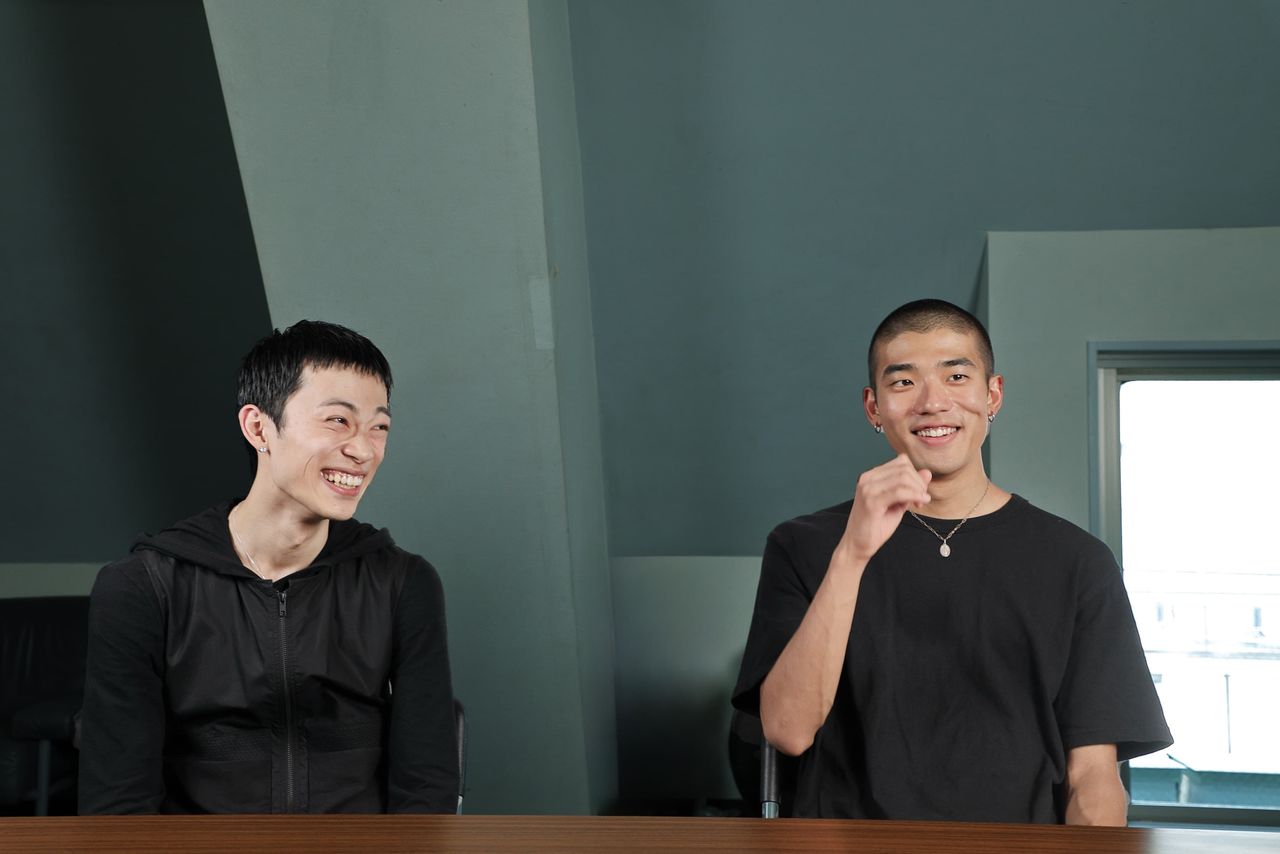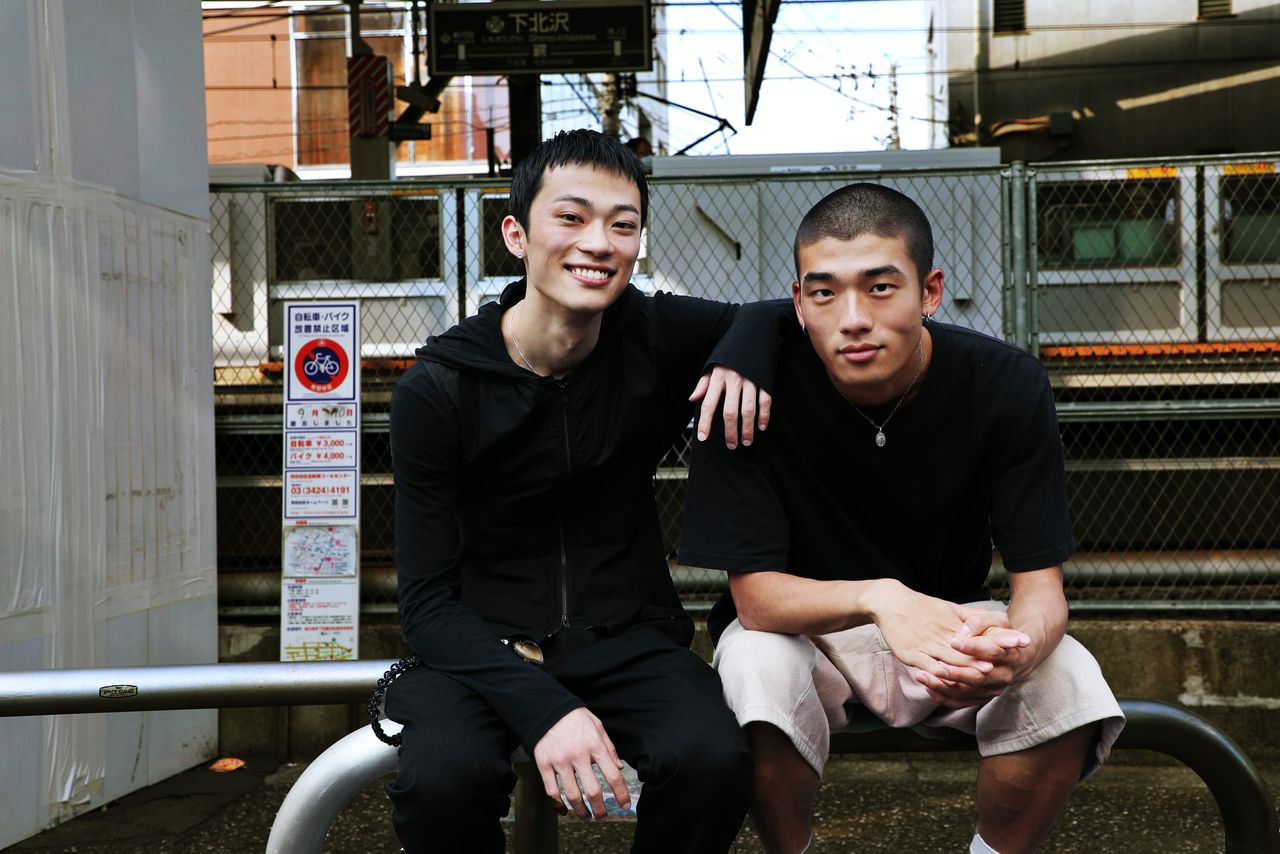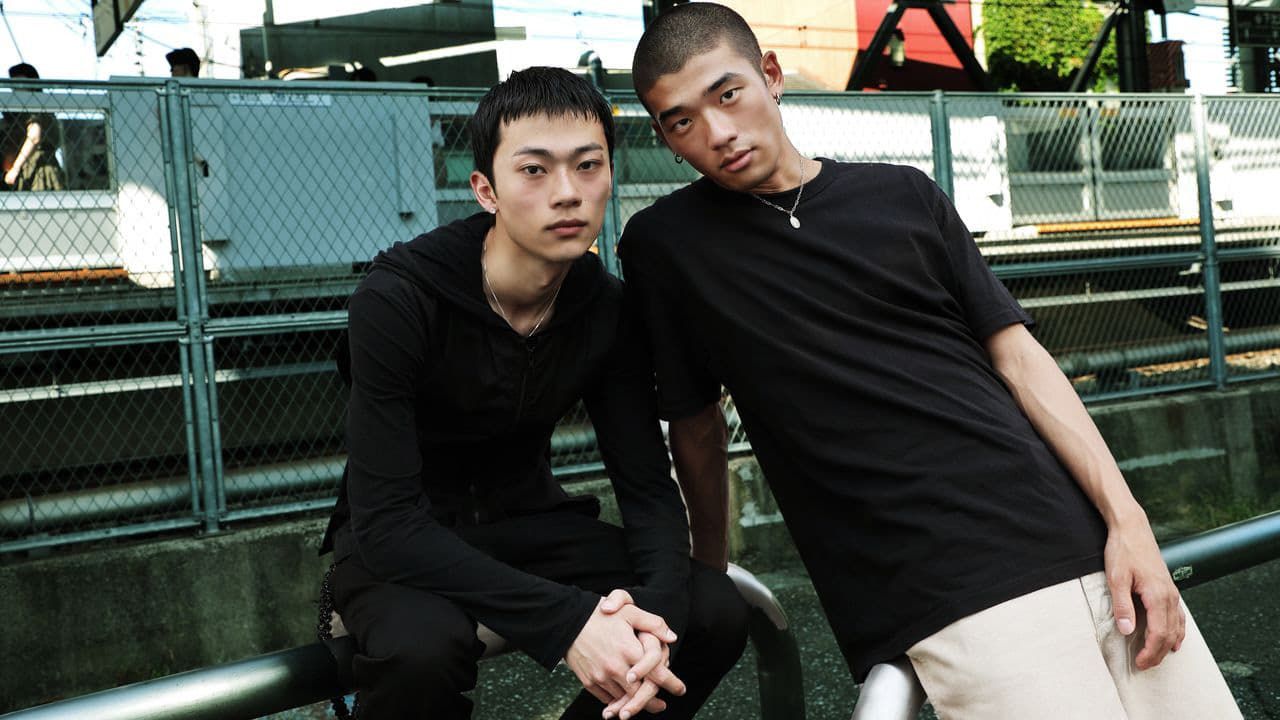
Japan’s Future in High School Eyes: An Interview with the Stars of “Happyend”
Cinema- English
- 日本語
- 简体字
- 繁體字
- Français
- Español
- العربية
- Русский
Happyend is the first feature film written and directed by Sora Neo, who previously directed the documentary film Opus, a presentation of the final performance of his late father, the musician Sakamoto Ryūichi. The film is set in Japan in the not-too-distant future.
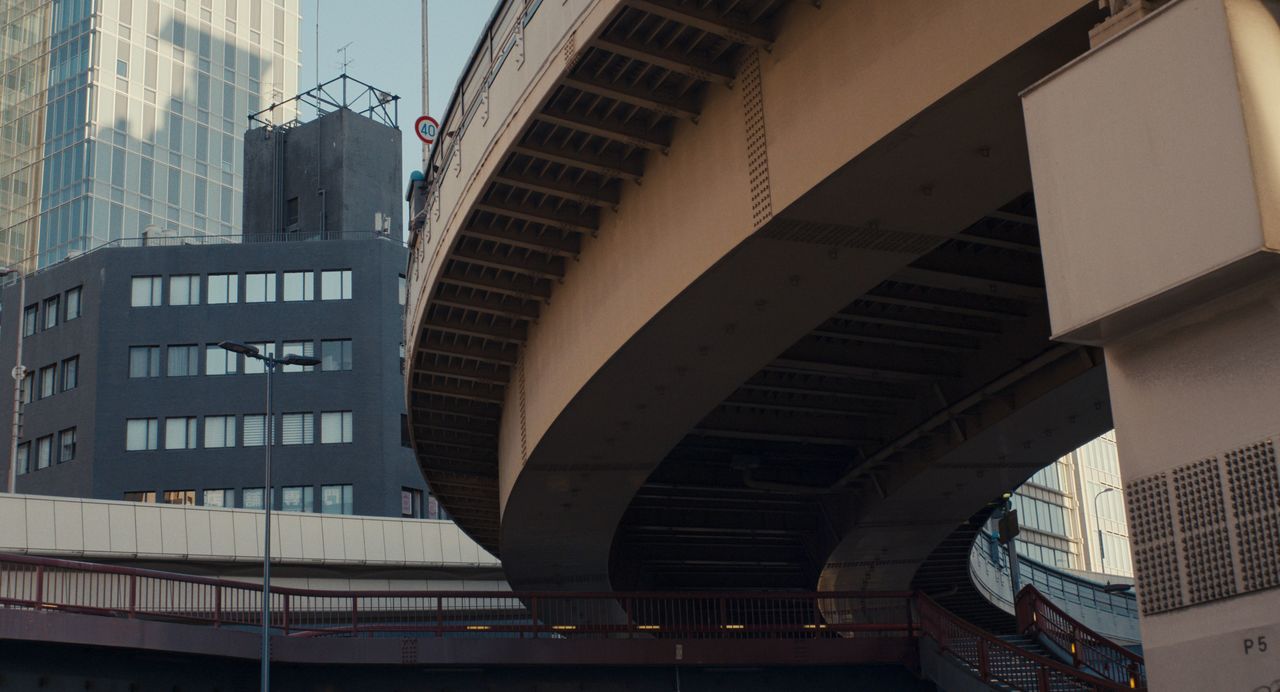
Happyend is set in near-future Japan. (© 2024 Music Research Club LLC)
As Japan is rocked by earthquakes daily, the population is gripped with fear of a possible megaquake. The government takes advantage of the situation, declaring a state of emergency and moving to rewrite the Constitution, triggering deep rifts in public opinion.
Amidst the social disquiet, the police begin strengthening public security measures, using personal data and facial recognition technology to track people instantaneously.
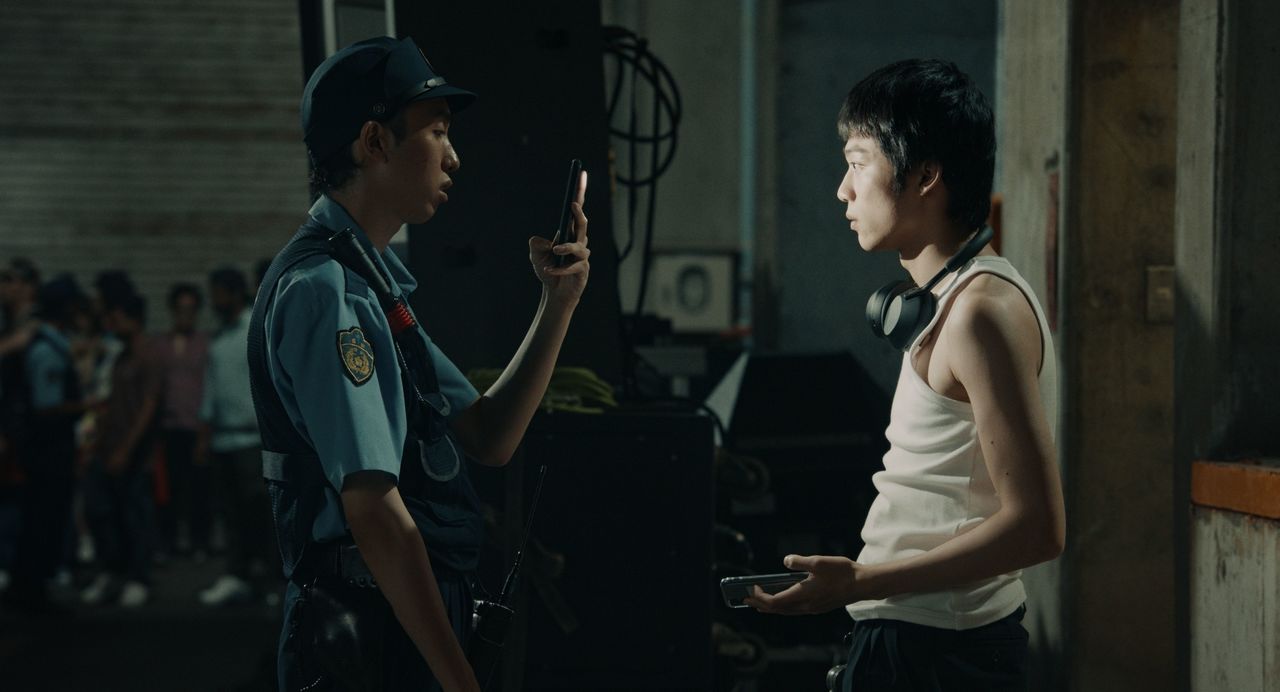
During a raid on a dance club, police use special handheld devices that instantly identify individuals and inspect their belongings. (© 2024 Music Research Club LLC)
The film’s two main protagonists are high schoolers, Yūta and Kō. Together with fellow members of their school’s “music research club,” they go to DJ events, sneak into the club room at night to play music, and try to enjoy the remainder of their school days.
Modeling Versus Acting
Yūta and Kō are played by Kurihara Hayato and Hidaka Yukito, in their film debuts. Both auditioned successfully just two months after starting modeling work, with no prior acting experience.
Despite auditioning before the US-based director Sora Neo, producer Albert Tholen, cinematographer Bill Kirstein, and others, the pair say they were not nervous. They obviously made a deep impression on the staff when they discussed the characters and shared similar experiences from their own lives.

Yūta (Kurihara Hayato, left) and Kō (Hidaka Yukito) live it up at a dance club event. (© 2024 Music Research Club LLC)
Kurihara Hayato’s character Yūta comes from a well-off family. His mother is often overseas with work, leaving him home alone to invite friends over.
Kurihara says, like Yūta, he was also raised by his mother, loved techno music, and was rebellious. He too spent his high school years hanging out with friends and messing around.
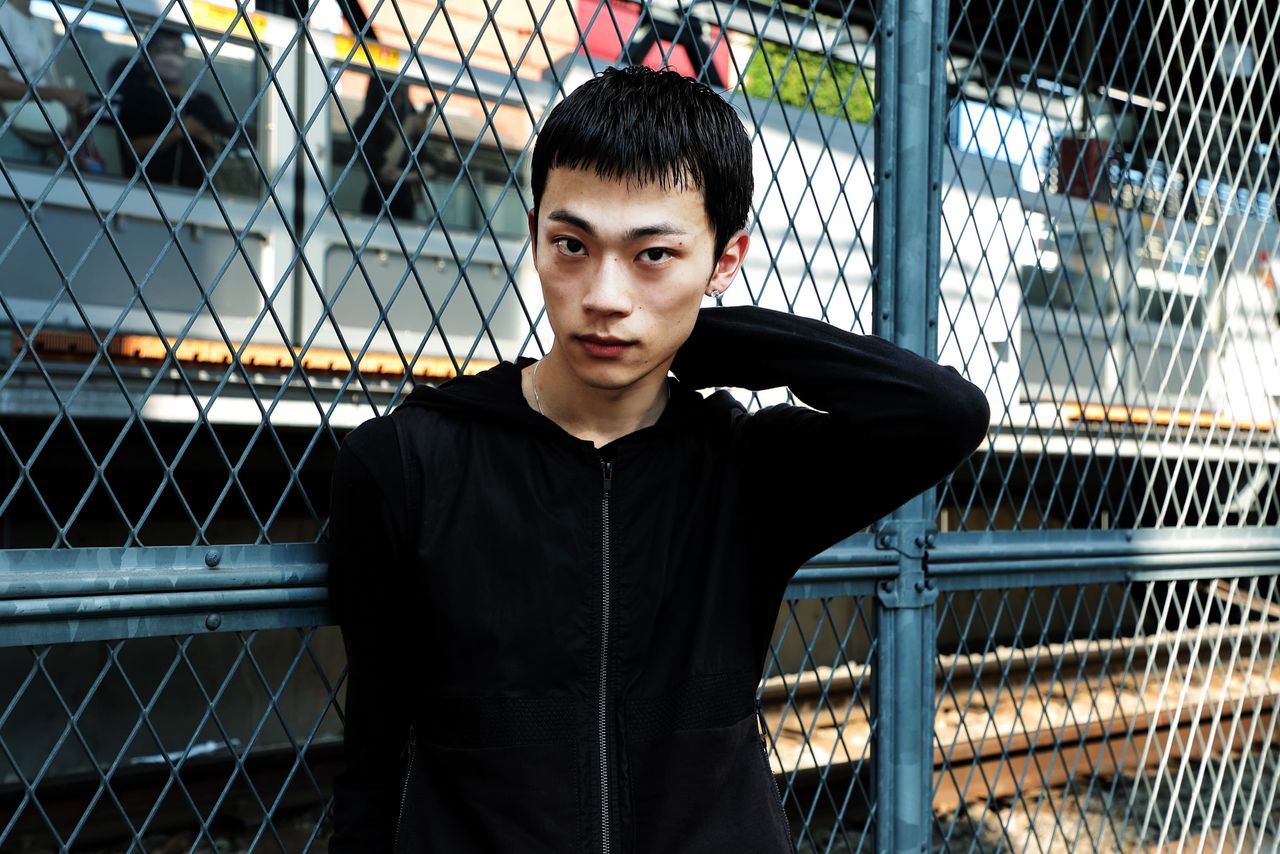
Kurihara Hayato was born in Niigata in 1999. As a model, he has appeared in numerous commercials and music videos. His hobbies include boxing and table tennis. (© Hanai Tomoko)
Hidaka Yukito’s character Kō is from a Zainichi, or ethnic Korean, family. His mother, who runs an eatery, hopes her son can enter university on a scholarship.
Coincidentally, Hidaka’s grandmother was also Korean. She died before he was born, and he only learned of his roots recently. His parents had kept it a secret from him, probably believing it was in his best interest. When it came to portraying a Zainichi character, he was encouraged by director Sora’s pledge to research together with him. In the process, he learned about the massacre of Korean residents after the Great Kantō Earthquake of 1923, among other things. He feels he gained much more than just acting experience while making the film.
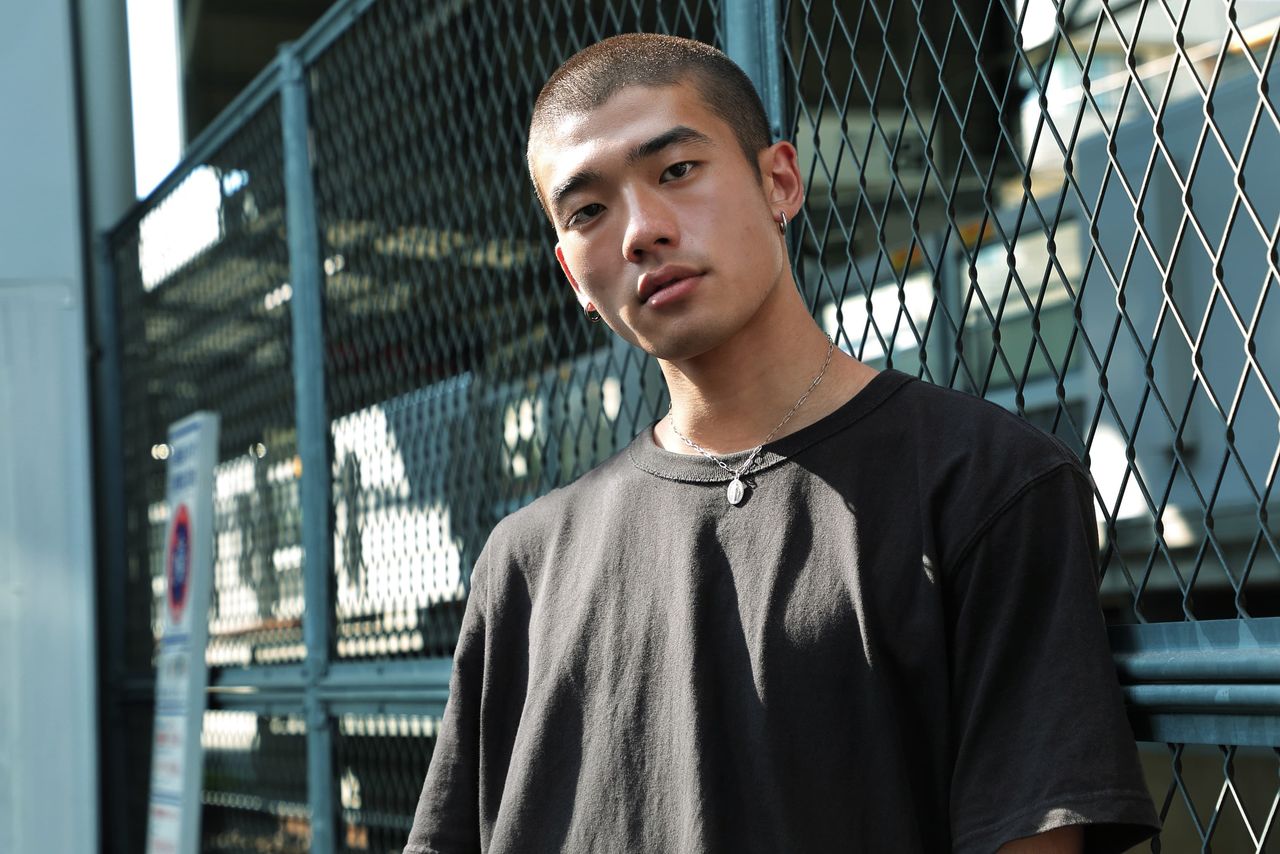
Hidaka Yukito, born in Osaka Prefecture in 2003. He speaks fluent Korean and works as a model in both Japan and South Korea. He has practiced track and field since school. (© Hanai Tomoko)
Kurihara was somewhat bemused at the thought of playing a high school student, since he left school five years ago. “I was a bit apprehensive, but maybe I haven’t really changed that much on the inside.”
“Right?” teases Hidaka.
Kurihara explains that, while he thought it was fine to act out his own persona, given the age difference, it still required his conscious effort to laugh appropriately and exude the right degree of youthful innocence and adolescent edginess.
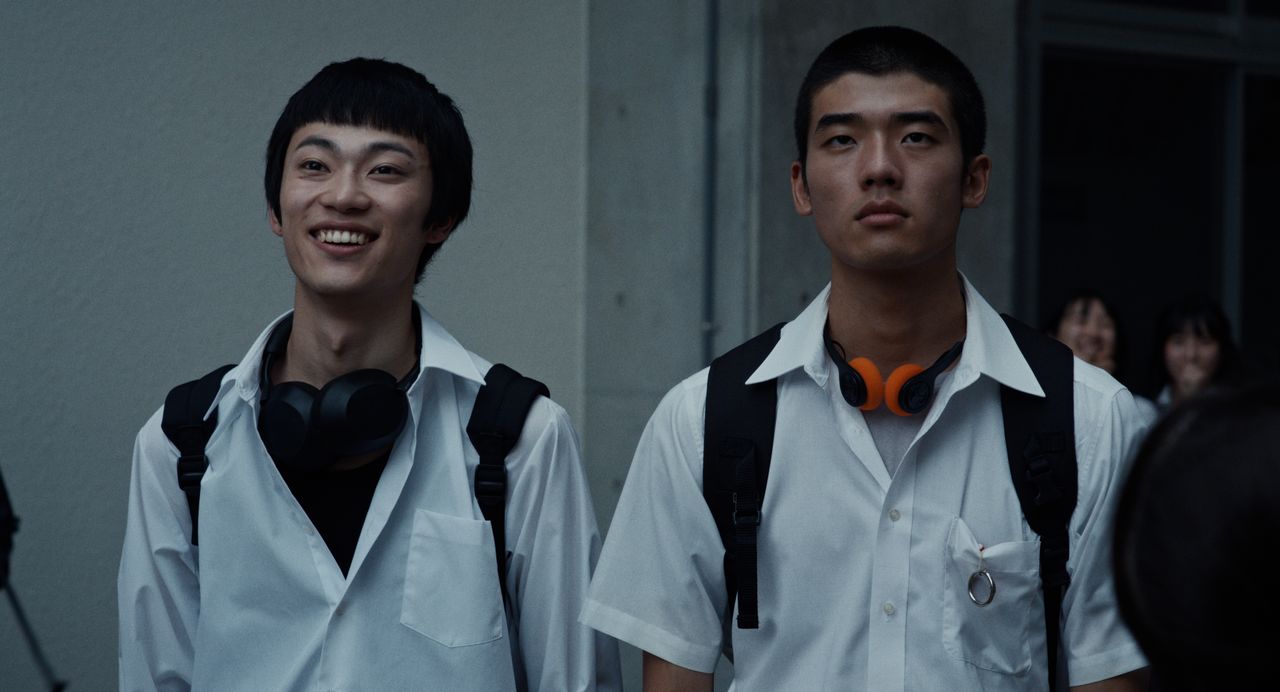
Yūta and Kō are childhood friends who attend the same high school. (© 2024 Music Research Club LLC)
In Hidaka’s case, shooting for the film came just six months after he graduated from high school, so it was not a case of reviving old memories. “It felt like I was only at school to compete in track and field. My school was so strict. We weren’t even allowed to have phones. For some unknown reason, we were also banned from rolling our sleeves up,” he laughs. “I did have some regrets at not enjoying myself more at school, so it was fun to act out adolescence again for the film.”
Regarding the differences between modeling and acting, Kurihara says, “I’m always in thought, even when there are no cameras. A model only really needs to concentrate in front of the camera, but as an actor, as well as acting in the moment, you spend a lot of time in contemplation. I really enjoyed that, though. Thinking about the character in the script and the message in the story was a great experience.”
Surveillance Societies and the Challenge of Speaking Out
Yūta’s and Kō’s school has quite a few students from non-Japanese families. Such schools already exist in some parts of Japan.
During the movie, an incident at the school prompts the principal to install an AI surveillance system, with significant consequences, but the move is welcomed by a portion of the students, for the perceived security it brings.
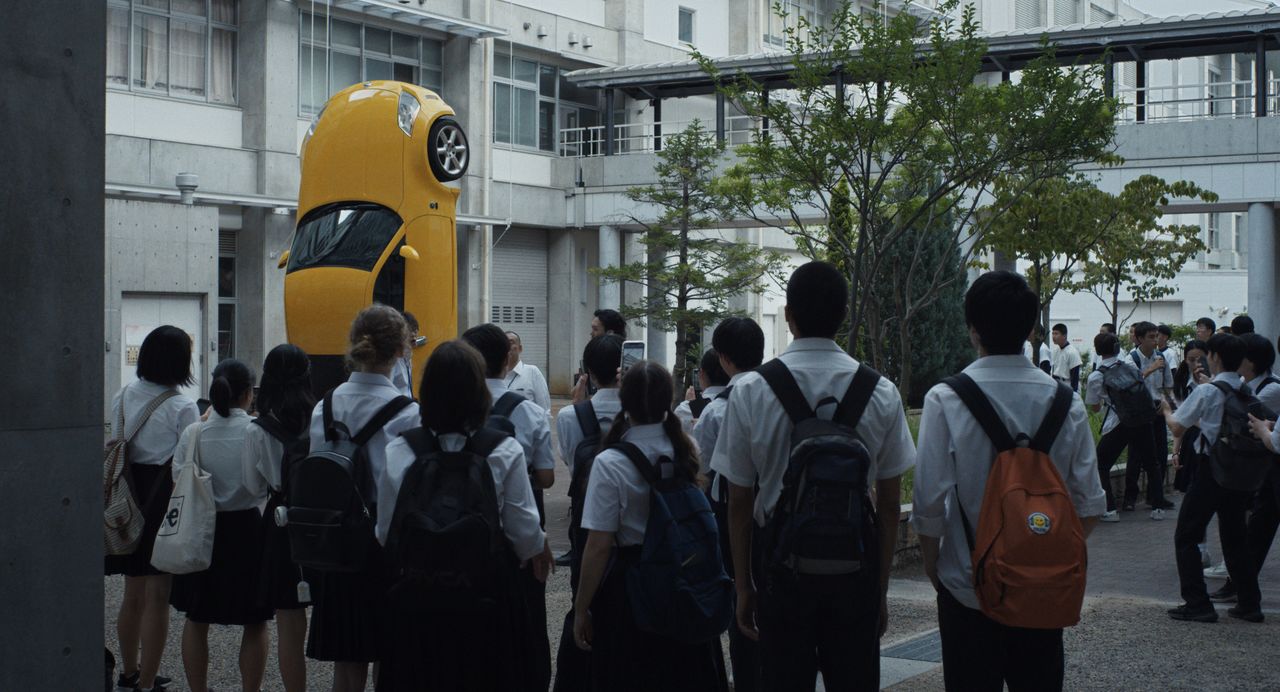
One morning, an unexpected event unfolds at school. (© 2024 Music Research Club LLC)
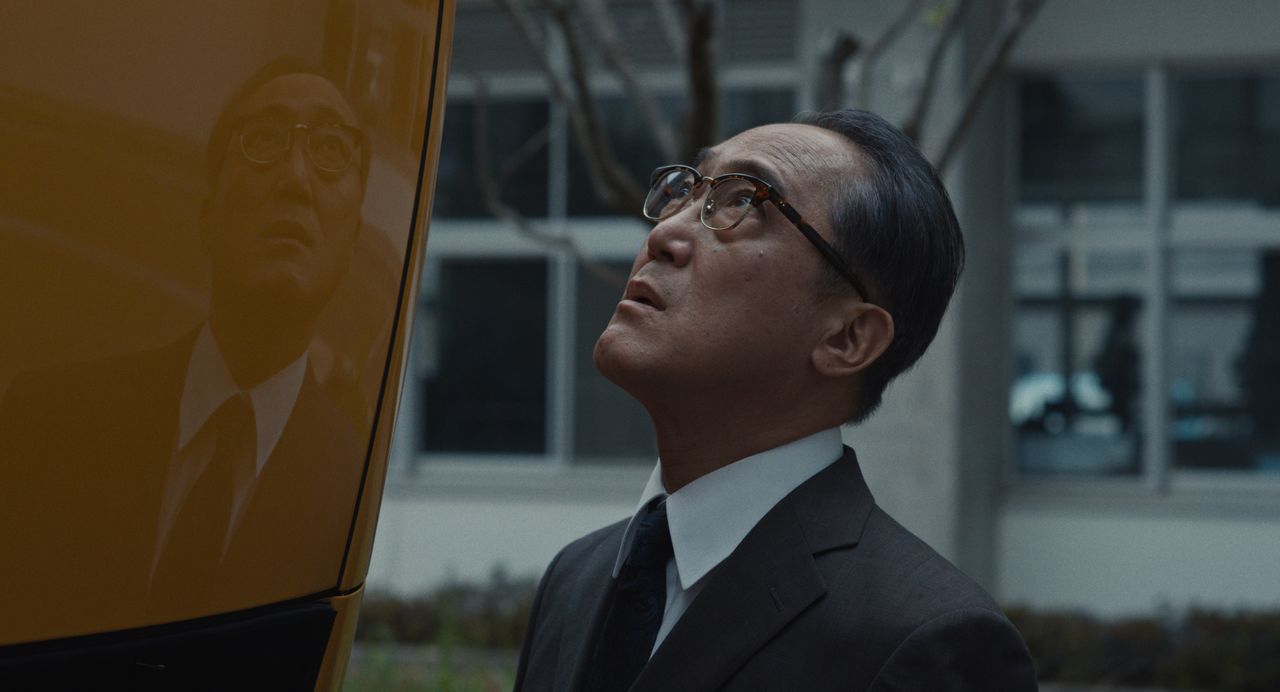
The school’s principal, Nagai, played by Sano Shirō, intimidates both students and teachers. (© 2024 Music Research Club LLC)
Our discussion turns to the threat to freedom and privacy with the increasing presence of surveillance cameras in modern society. Kurihara is fearful of the emerging “surveillance society” and our vanishing freedoms. “It’s the same with social media. Living constantly conscious that someone is watching you causes stress to build up.”
According to Hidaka, “This line of work makes you more conscious of what other people’s perception of you. People around me make all kinds of comments. The only way to cope is to try not to care, but it’s not that easy.”
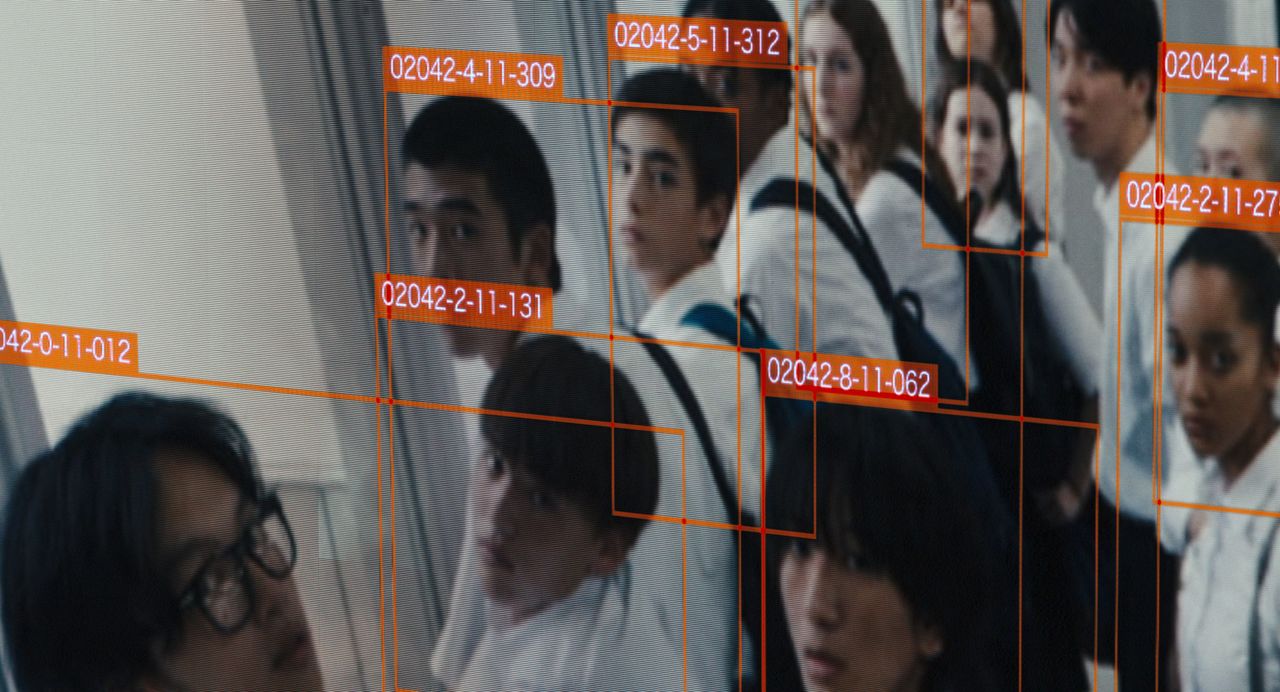
When the AI surveillance system deems a student has flouted the rules, it deducts “points.” (© 2024 Music Research Club LLC)
With growing restrictions on people due to the declaration of a state of emergency and introduction of an AI surveillance system at the school, Kō becomes conscious of the importance of speaking out. But Yūta is oblivious, immersed in music and fooling around. Kō grows annoyed at Yūta’s naïveté, and cracks begin to emerge in their longstanding friendship.
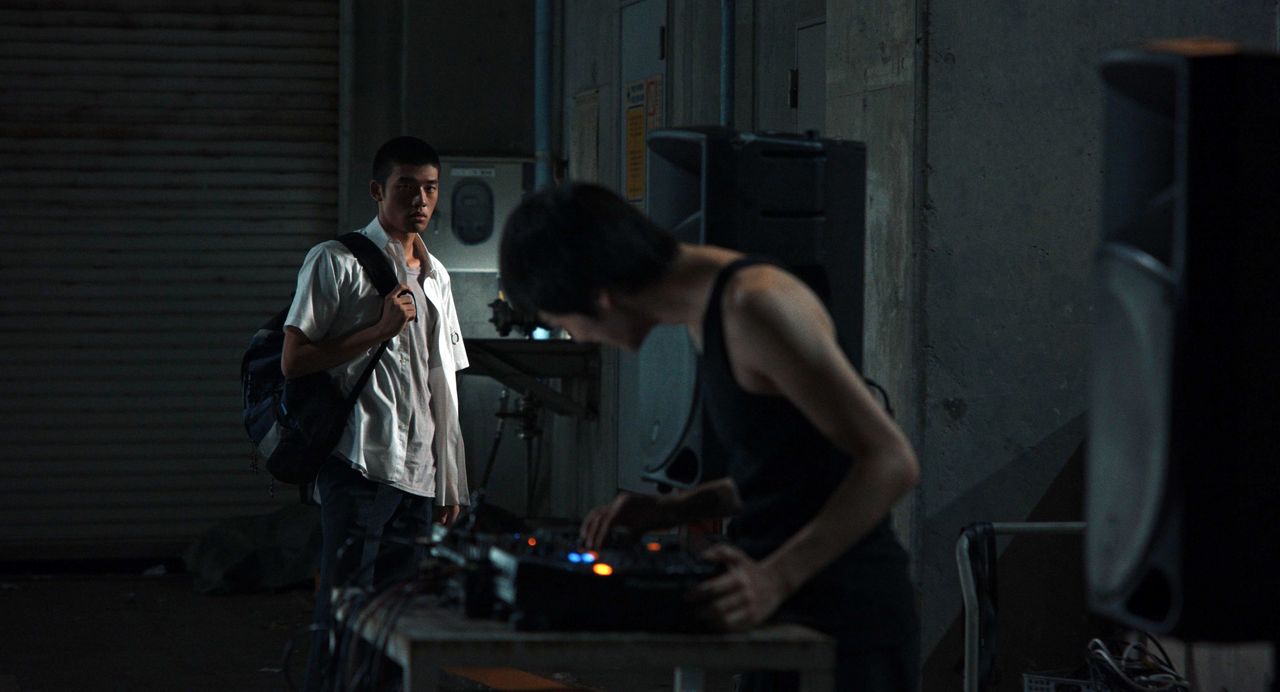
Differences begin to divide Kō (left) and Yūta. (© 2024 Music Research Club LLC)
In regard to the apparent growing apathy of young Japanese toward politics, and the pressure against those in the entertainment industry to express their views, Hidaka agrees: “It’s complicated. Sometimes I see something is wrong, and I want to say so, but if it’s not worth worrying about, I think maybe there’s no point saying anything. Sometimes it’s important to keep your opinions and feelings to yourself. In some instances, you have to speak up, but there are other situations when you don’t need to. In my life up to now, I haven’t experienced many times when I had to plead a case, so it’s hard to say how I would respond if I was placed in such circumstances.”
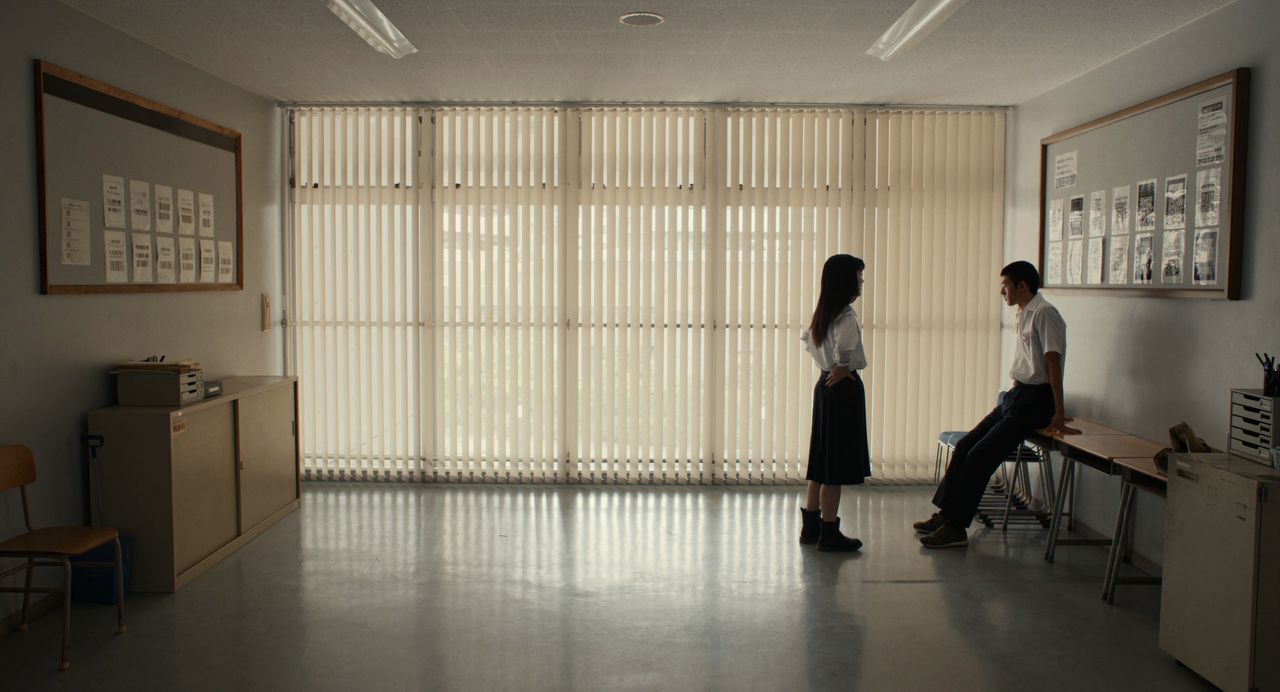
Kō grows closer to Fumi (left, played by Inori Kilala) after joining a protest. (© 2024 Music Research Club LLC)
According to Kurihara, “I feel that it’s becoming more acceptable for performers to make political comments, which is a good thing. It’s important to express your opinions, but you can cause misunderstandings if they’re not backed up with genuine knowledge. If people are careful about how they share their opinions, we’ll head in the right direction.”
The Future for Kurihara and Hidaka
Happyend was shown at the Venice Film Festival in the Orizzonti section, for films deemed representative of new expressive trends in world cinema, often by lesser-known directors. The 1,400 seats for the film’s world premiere, on September 2, sold out almost immediately, and after the film, audience applause and cheering continued for a few minutes.
Hidaka was moved by the Venice enthusiasm. “Going forward, I hope to perform more roles, even minor ones, to gain experience, and to build an image based on people’s understanding of my acting style. I hope to be an actor who makes a strong impression. I’m thankful to everyone that I had my debut in such a good film, and I want to keep that in mind in my future ventures.”
Talking about his future, Kurihara says he loves fashion and studied clothing and accessories at vocational school. “I hope to be involved in clothing at some point. I became a model because I think I’m suited to fashion, but when making this film, I really wanted to do my best as an actor. I want to become a performer who people think is the right guy for the role.”
Trailer (in Japanese)
Official website (in Japanese): bitters.co.jp/HAPPYEND/
(Originally published in Japanese. Interview and text by Matsumoto Takuya of Nippon.com. Banner photo © Hanai Tomoko.)

